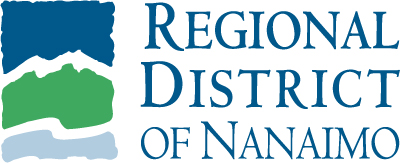Rachelle Stein-Wotten
Local Journalism Initiative Reporter, Gabriola Sounder
The Regional District of Nanaimo board has directed staff to review the solar panel permitting process following a letter from a local business who says the requirements are cost prohibitive and out of alignment with other local governments.
Richard Wayte, who manages the solar division of Osprey Electric, which has offices in Parksville and Campbell River, wrote an email to RDN director Stuart McLean, chair of the climate action technical advisory committee. The letter asserts permitting requirements implemented by the RDN in June 2022 “put the brakes on enabling clean renewable energy” installations in the regional district, specifically rooftop solar projects. Wayte’s letter says a dozen homeowners have cancelled contracts with the company because of permit fees, which it states are higher than neighbouring communities.
It says the RDN “killed the advantage” of the federal government’s Greener Homes Grant which provides up to $5,000 for retrofits including solar panels.
RDN staff told the Sounder that the permit requirements to add solar panels to existing structures were introduced last summer because such installations “impose additional loads on the roof framing that may exceed the roof structure’s original design.”
Part of the permitting process requires a review by a structural engineer to evaluate a building’s structural capacity and attachment of the panels to the structure. Osprey Electric says all those requirements typically cost a homeowner $5,000. It wants to see the RDN adopt a similar strategy to the City of Vancouver which does not require a building permit if certain criteria are met, including that the unit weight of the photovoltaic panel system does not exceed 5 pounds per square foot.
“The letter does raise some valid questions and concerns from the solar development community,” McLean said at the Sept. 12 board meeting.
RDN general manager of planning and development, Lisa Grant, said staff will look at some of the current requirements that the RDN has as well as other communities. They’ll also provide more detail on building code stipulations “and where we understand the building code may be coming with further direction on this matter as well so that it gives a little bit more understanding of how we are where we are at this point and where we may go in the future.”
Area B director and board chair, Vanessa Craig, said it’s not just businesses that are challenged.
“I’ve been approached by non-profit societies who … own buildings, like GIRO and others, who wanted to put solar panels on to become more environmentally responsible and to offset some of their costs and they’re finding that the requirements – well they can’t proceed under those circumstances.
I’m interested to read more about potential ways we can address this.”
In roughly the past year, the RDN has received a total of 21 standalone solar panel permit applications. Of those, 18 solar panel permits have been issued. New buildings that are designed with solar panels are not required to obtain a separate permit.





Recent Comments